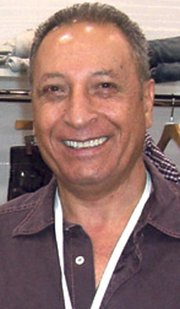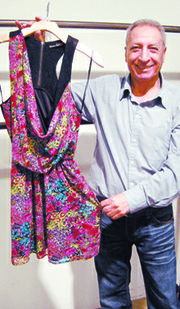Port of LA, Department of Commerce Launched Program to Export LA Brand to China
LAS VEGAS—Several years ago, Moshe Tsabag tried to take his clothing label to China but had little success.
Now the Los Angeles fashion executive is gearing up to try again, this time with a different brand and the assistance of several government agencies.
Tsabag will be part of a pilot program initiated by the Port of Los Angeles and several export-assistance agencies to provide Tsabag with “concierge service” to begin exporting his juniors label, Velvet Heart, to China, said Wendy Bruget of the California Centers for International Trade Development, a Sacramento, Calif.–based agency that assists California companies in doing business abroad.
Three years ago, Tsabag launched Velvet Heart and has expanded the brand to include distribution in Australia, Japan, Canada and Europe. But China would be new territory for the veteran fashion executive, who has a history of starting juniors labels, such as Yes and Hot Kiss.
Government assistance will be the new ingredient in his export endeavor. “We’re going to work with the Port of L.A. and the [California Fashion Association] to help penetrate an export market—only this time, it’s China,” said Francisco J. Sanchez, under secretary for international trade with the U.S. Department of Commerce. “There’s no guarantee that this is going to be easy, but that’s no reason not to try.”
Opportunities closer to home
Sanchez was in Las Vegas speaking on a panel at Sourcing at MAGIC on Aug. 21. “This makes sense, as part of President Obama’s export initiative,” he said. The president wants to double U.S. exports by 2014.
“The more businesses export, the more they produce,” Sanchez said. “The [apparel] industry remains a critical force in our economy,” he said.
This season, Sourcing at MAGIC put the focus on the Americas, with more than 75 companies from North America, South America and Central America among the exhibitors.
“We have a tremendous opportunity for apparel companies in the Western Hemisphere to do business together,” Sanchez said. “We have to look for ways to integrate the supply chain. This is really the future.”
As an example, Sanchez pointed to Embraer, a Brazilian airplane maker that sells its planes to the United States. According to Sanchez, 70 percent of each airplane contains U.S.-made components.
“I’m looking forward to the DOC [Department of Commerce] to work closely to integrate the supply chain working in the Western Hemisphere,” he said.























